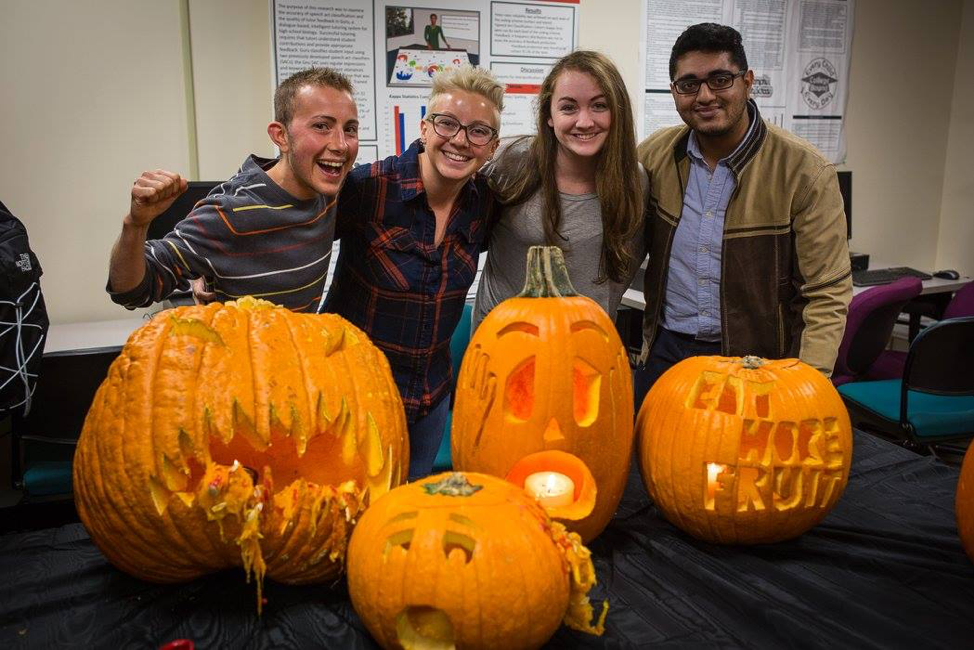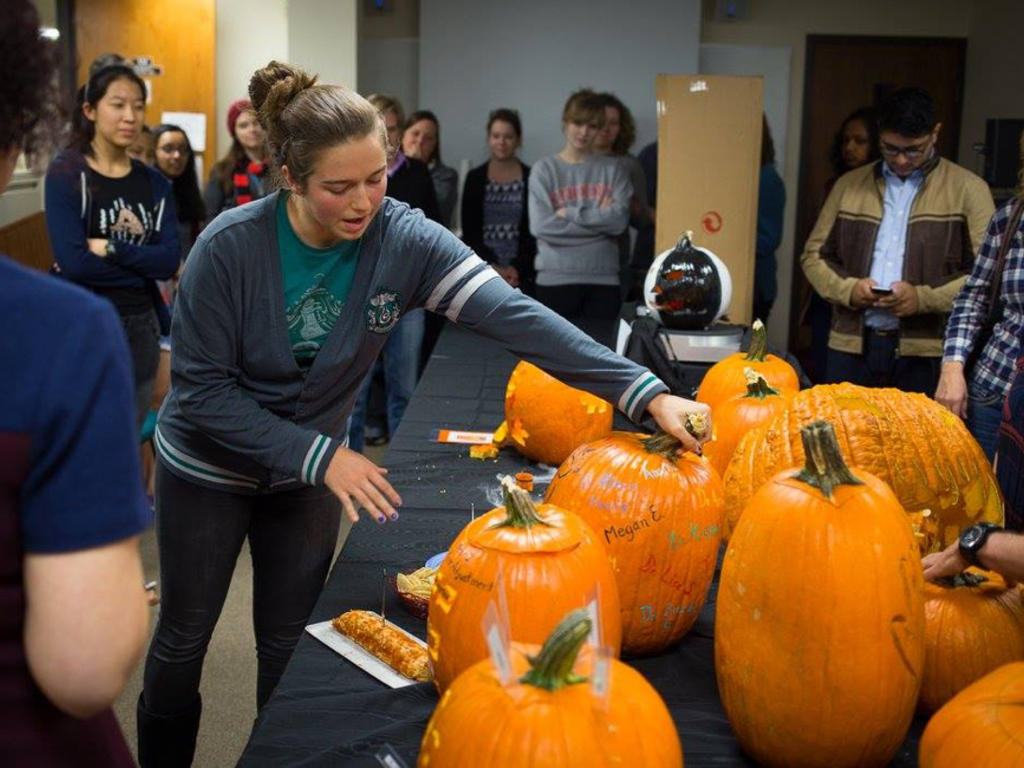
The Department of Psychology hosted its 4th annual pumpkin carving contest on Halloween. Pumpkins are carved and designed by teams made up of students and faculty members. Participants are required to base their design on the topics and themes they examine in their research. Prizes are awarded to the top three submissions, which are determined by a panel of surprise faculty judges.
Dr. Jason Haberman, assistant professor of psychology, brought this tradition to Rhodes in 2015 as a continuation of a similar tradition that occurred annually at his graduate school. “The camaraderie, mild competition, and informal setting make for a great opportunity to connect with other faculty and students,” Haberman says.
“The pumpkin competition is an annual opportunity for our research teams to be creative and for students to explain their research to a diverse audience,” Dr. Katie White, chair of the psychology department, says. “The students have fun working together to design and execute their pumpkin creations, and the competition among labs creates an exciting energy in the department.”
Research topics have included perception, memory and cognition, infant and child development, implicit bias, white privilege, gender identity, and many more. Previous winning submissions have included a ‘Peer Pressure Pumpkin Patch,’ as well as various ‘visual illusion’ pumpkins that were designed by Haberman’s visual cognition lab.
This year, Dr. Kiren Kahn’s language and literacy lab won first place for their three pumpkin creations, which depicted The Rainbow Fish, Carol from Where the Wild Things Are, and the caterpillar from The Very Hungry Caterpillar. Kahn's lab investigates the mechanisms that support narrative development in young children and utilizes this knowledge to design and test the effectiveness of novel narrative instructional strategies.
Haberman’s visual cognition lab won second place for their ‘Pumpkinpagnosia,’ which is a play on the word prosopagnosia, meaning the inability to recognize faces due to brain damage. The carved jack-o-lantern features a brain with electrodes attached to it that was carved out of a smaller pumpkin. The brain lights up each time a face is displayed on an adjacent computer screen.
The third place winner was Dr. Geoffrey Maddox’s memory and cognition lab. Their team featured word pairings and memory span tests to demonstrate the types of tests that they run in their lab.
